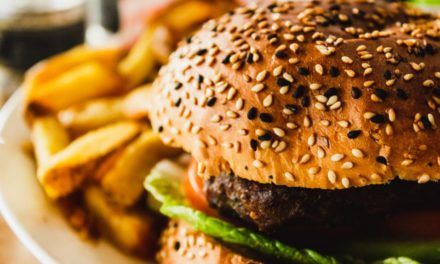There are so many different fruits, and each one is special in its own way, and holds so many nutrients that others don’t necessarily have. One fruit with lots of nutrients in it, despite containing around 92% water, is watermelon. Watermelon is a fruit that holds many nutrients, as well as has many benefits. However, discerning whether it’s a wise choice to enjoy watermelon during evening hours warrants careful consideration. In this comprehensive guide, we delve into the nuances of consuming watermelon at night and explore its effects on sleep quality, digestion, and health.
Watermelon is a fruit that is healthy, but there are still a few things you need to watch out for and a few questions you need to ask before, and while eating it. Including things like how much watermelon to eat if you’re diabetic? Can you even eat it if you’re diabetic? What does a watermelon contain as far as vitamins and nutrients go? And is it bad to eat watermelon at night? How eating watermelon affects your sleep? And, many more…
These are all undoubtedly valid questions to ask before eating watermelon, as the answers may affect how water may affect your body, if you’re unaware of the answers.
All of these questions about watermelon (and more!) are things we will be talking about today, and they will all be answered shortly.
So, let’s get started by understanding what watermelons really are.
What is Watermelon?
Watermelon is a plant species from the family of Cucurbitaceae. That’s a vine-like flowering plant that originally grew in West Africa.
Watermelon is a fruit botanically, like a pepper, tomato, and pumpkin. It has a green smooth exterior around it, with a red sweet and juicy interior. It’s a very popular fruit, especially in the summertime.
As it contains lots of water (as you might be able to tell by the name), it’s very hydrating, so during the summer, it’s a very popular go-to snack during the hot days.
Although when thinking of watermelon, everyone typically thinks of the same thing, but in reality, there are over 1000 different varieties.
We won’t be discussing all of those 1000 varieties today, obviously, but we will be covering a few of the different key types of watermelon that exist out there.
So, let’s talk about that now.
Types of Watermelon
As I said, there are over 1000 different varieties, but overall, there are 4 major types of watermelon. These types of watermelon include the following:
1. Seedless Watermelon
These watermelons are actually man-made. Beginning in the 1990s, people began to breed watermelons in order to make this type of watermelon. They were made for those who dislike spitting out watermelon seeds.
2. Picnic Watermelon
These watermelons tend to be larger than typical watermelons. They’re usually between 16-45 pounds. That’s right, they can be 45 pounds.
3. Icebox Watermelon
These watermelons are also bred, and their purpose is to feed one person or a small family. They’re much smaller than just about every other type of watermelon out there.
4. Yellow/Orange Watermelon
Finally, there is this watermelon type which has a yellow/orange flesh, rather than red.
They can come seedless or seeded, and although you don’t see them as much as any of the other watermelon, I’ve listed above this, they are still pretty good and tasty.
Not only that, now the Japanese produce square share watermelons (watch the video for more)
Now that we’ve discussed the popular, standard types of watermelons out there, let’s talk the nutrients that watermelons hold, which makes them so good for you.
What Contains in a Watermelon? The Nutrition Facts
Watermelons, as hinted at in the name, are mostly full of water. Roughly 92% of a watermelon is water. However, although watermelons contain mostly water, it’s not the only thing they have in them.
They also contain many different nutrients. From watermelon, you can get lots of
- vitamin A,
- vitamin B6,
- vitamin C,
- lycopene,
- antioxidants,
- amino acids, and
- there’s even a little bit of potassium in watermelon, as well.
Let’s delve into the nutritional components of watermelon:
| Nutrient | Quantity | Role |
|---|---|---|
| Vitamin A | Abundant | Supports vision and immune function |
| Vitamin B6 | Significant | Aids metabolism and cognitive health |
| Vitamin C | Substantial | Boosts immunity and collagen synthesis |
| Lycopene | High | Potent antioxidant for heart health |
| Antioxidants | Varied and potent | Combats oxidative stress |
| Amino Acids | Present | Supports cellular repair and growth |
| Potassium | Moderate | Contributes to heart and muscle health |
Watermelon has almost no protein or fats in it, and it’s a very low in calories, also due to the fact that it’s mostly water. Because there’s little to no protein or fats, there’s also no cholesterol. So overall, watermelons hold many nutrients that can potentially benefit people who eat it.
Now that we know what nutrients are actually in a watermelon, let’s discuss what specific benefits those nutrients can give us, and the exact things they do when they get inside of us.
We already know these nutrients that watermelons hold are good for us, but you may not know the specific benefits they have, and what good they actually do inside our bodies.
So, let’s talk about that now.
Health Benefits of Watermelons
Watermelon, although mostly water, contains many things in it that make it a healthy snacking choice, especially on hot summer days. Watermelon has a lot of health benefits to it, some of which actually comes from the fact that it’s mostly water, and some of which come from the other part of the watermelon, where all the nutrients lie.
Here are the top health benefits of eating watermelon:
1. Hydration Booster
Due to the fact it’s mostly water, it helps you hydrate faster. Given its water-rich composition, watermelon efficiently replenishes fluid levels, aiding in hydration during scorching days.
2. Heart Health
It may help improve heart health. Lycopene and potassium in watermelon work synergistically to support cardiovascular health by regulating blood pressure and reducing inflammation.
3. Antioxidant Defense
It can lower inflammation and oxidative stress. The amalgamation of antioxidants assists in neutralizing harmful free radicals, potentially reducing the risk of chronic diseases.
4. Muscle Recovery
It can help relieve muscle soreness. Amino acids present in watermelon can help alleviate muscle soreness and promote faster recovery after physical exertion.
5. Rich In Vitamins
Contains all of the vitamins and nutrients I listed above.
And, many more.
So now that we’ve discussed a few of the benefits of watermelon, let’s talk about a few specific health situations, and whether watermelon would be a good choice of food to eat in that situation. Starting with if a watermelon is right for you if you have stomach acidity, or acid reflux.
Tip: Do you know that watermelon favour chewing gums can help you manage stress and anxiety?
Is Watermelon Good for Stomach Acidity?
For the most part, yes, watermelon is good for stomach acidity. Overall, it is a food that is good for acid reflux, and can potentially help the pain that comes along with it.
However, just like some other fruit such as bananas, it is possible for it not to be good for stomach acidity, and for it to just make things worse. It’s rare, as only about one to two per cent of people with acid reflux need to stay away from it or avoid it.
It’s not likely that if you experience acid reflux or have lots of stomach acidity that watermelon will make it worse, however, it’s not impossible. It is certainly possible for it to make stomach acidity worse, and it can possible for the pain to increase when you eat watermelon and experience some type of stomach acidity. Still, it’s pretty rare, like I stated a few sentences ago.
Only about 1-2% of people experience worsening of stomach acidity when eating watermelon while struggling with some type of stomach acidity. Even though around 98% of the time it helps, it is possible for it to worsen the symptoms. So if you have some type of stomach acidity and you try watermelon, but it worsens any symptoms you get due to the stomach acidity, watermelon probably isn’t for you while you’re dealing with this.
OK, so what about if you have diabetes?
Let’s find out.
Is Watermelon Good for Diabetics?
Watermelon is not a food that is particularly good for diabetics to eat. It has nothing in it that makes it “good” for them to eat, like it’s going to help them.
However, even though it may not particularly be a food that is labeled good to eat if you have diabetes, it is safe for them to eat, in small portions. They may not contain anything that is particularly good for diabetics to eat, but they also contain nothing that is particularly bad for diabetics to eat, either.
It is safe for a diabetic, as long as they don’t eat too much of it. If you eat it in moderation, and don’t overdo it, watermelon can be perfectly safe for a diabetic person to consume.
If you’re diabetic, keep all of this in mind next time you decide to choose watermelon to snack on, or as something to include in your meal.
Then, what about for hypertension?
Let’s find out.
Is Watermelon Good for High Blood Pressure?
Although it doesn’t always work, in some cases, watermelon can possibly lower blood pressure, and keep it stable and under control in those with high blood pressure problems.
The book “Healing Foods” by DK Publishing explains why it may help. It says “watermelon contains a useful amount of potassium, a natural diuretic that helps to normalize blood pressure. Watermelons are rich in lycopene, which helps lower the risk of heart disease.” So, because of the nutrients it holds, it is possible to lower blood pressure by eating watermelon.
However, in my opinion, you shouldn’t 100% count on those words. Still, if there’s no other reason you can’t eat watermelons, such as an allergy or another medical condition where watermelon should not be consumed, then you can always try it!
Again, my best advice is to talk to your doctor.
Tip: Did you know Garlic can help you lower high blood pressure? Not only that, but some types of tea can also help too.
Now let’s work out when you should and shouldn’t eat watermelon.
Shall we…
When Should You Eat Watermelon? Optimal Timing for Consumption
Best Time:
The morning or early afternoon, at least 4 hours before sleep, is the ideal window for consuming watermelon. This timing aligns with the body’s digestion process, ensuring proper nutrient absorption and minimizing discomfort.
Watermelon is another food that should not be eaten at night due to how the body digests it. The best time to eat watermelon is in the morning or early afternoon, at least a 4 hours before you go to bed.
Despite being basically water in the form a fruit, with a few nutrients thrown in, watermelon is surprisingly a food that is harder to digest. That plus the fact your digestive system slows down later in the day (the closer to sleep you are, the slower your digestive system is), makes watermelon almost impossible to digest at night.
But, when eaten early in the day, whether in the morning or early afternoon, means it will be digested by the time you go to sleep, and if the watermelon is fully digested by then, that not only means that it shouldn’t cause any pain or anything like that, but it also means that you will fully absorb all the nutrients from it.
So, to sum-up, watermelon is definitely a morning or early afternoon type of snack. Now, let’s get more into depth about the time’s during the day when you should not eat watermelon.
When Should You Not Eat Watermelon?
Like I said above, watermelon is a food that should be eaten during the day. When it is eaten in the morning, unless you have a different underlying issue, watermelon is digested properly and causes no complications. However, watermelon should not be eaten during the late afternoon, or at night time, as it becomes harder for the body to digest, and it can even become painful as your body tries to digest it.
The closer you are to sleep, the worse time it is to eat watermelon.
There is a lot to say about this topic, actually. There’s a lot to discuss regarding watermelon being eaten at night. So, let’s talk more about it, and get more in-depth about it.
Is it Bad To Eat Watermelon At Night?
Yes, watermelon is not a food that should be eaten at night. Like many foods, watermelon should not be eaten at night for digestive reasons.
It’s a food that is harder to digest anyway, but along with that, at night, your digestive system slows down. So those two things together automatically make watermelon a food that should not be eaten past about 4 pm, maybe a little earlier and maybe a little later, depending on when you go to bed.
Eating foods that are hard to digest anyway later in the day can be very hard on your intestines and your body in general, due to the fact it’s even harder to digest at night.
If you eat watermelon at night, you risk many different problems occurring to you and your body because of it. It may possibly even damage your body. So, let’s get more in-depth about all of this. About why exactly watermelon is bad to eat at night, as well as what the results of eating it at night could be.
Not Recommended at Night
Watermelon should be avoided during the late afternoon and evening. As digestion slows down at night, consuming watermelon during this period might lead to indigestion and discomfort.
Why is Watermelon Bad as the Dinner Before Bed?
As talked about above, watermelon is not something you should be eating at night. The reason for this is easy to explain. Just like a lot of other foods, it’s harder to digest at night, and it can cause stomach pains and other symptoms, as well as remain in your body a lot longer than it really should.
This is because at night, when you get tired and when you eventually fall asleep, your metabolism slows way down, as well as your entire digestive system, and it slows the process way down.
Eat watermelon at night can be so disruptive, and even destructive. It can even cause Irritable Bowel Syndrome (IBS), as well as many other problems and issues. But also if it doesn’t cause any type of syndrome or any problems that need to be diagnosed, it can still cause lots of pain, nausea, and other symptoms like that. So be careful when eating watermelon later in the day, as it can cause these issues.
Alternatives
We have also covered Rockmelon and diabetes. Enjoy below.
Conclusion
In conclusion, although full of nutrients and highly recommended eating for those in certain health situations, watermelon is not a food that should be eaten at night due to the fact it’s a food that’s harder to digest, and at night your digestive system slows way down, and making watermelon almost impossible to digest as a result.
So when choosing watermelon as a late-night snack, possibly reconsider that, and choose something else instead.
Thank you for reading! Let me know if you have any questions.











Hi there,
Wow, yesterday I ate watermelon just before bed, and it gave me stomach pain. It was really hard to digest. I thought that I could eat watermelon without restriction and wherever I wanted to, but as I read your article, I see that it’s not recommended at all. Watermelon in my country is seasonal. It’s available on the market for only 2 months. However, from now on, I won’t eat just before bed:)
Thank you so much for this useful post.
Dear Daniella,
Thank you for sharing your personal experience and insights. It’s wonderful to hear your thoughts and observations, and we’re here to provide some perspective and support.
Your experience with eating watermelon just before bed is a valuable reminder of how our bodies can respond differently to various foods, even those we might consider light and refreshing, like watermelon. Digestion is a complex process, and sometimes the timing of our food choices can play a role in how comfortably our bodies handle them.
Seasonal fruits like watermelon often hold a special place in our hearts and our diets. It’s fascinating to think about how the availability of certain foods can be cherished during specific times of the year. Your description of watermelon’s limited availability for only two months in your country adds an extra layer of appreciation to enjoying this juicy treat.
The realization that eating watermelon before bed might not be the most suitable option for you is a part of the ongoing journey of understanding your body’s needs and preferences. Your openness to learning from your experiences is truly commendable and reflects a proactive approach to your well-being.
Thank you for finding value in the article and for your kind words. It’s heartwarming to know that the information shared can contribute to making thoughtful choices. As you continue to enjoy the delights of watermelon during its season, we hope you find joy in savoring it at times that align well with your body’s comfort and digestion.
Wishing you many more enjoyable and satisfying experiences with the seasonal treasures that your country offers.
Enjoy!
Hey thank you for this post!
Watermelons are one of my favourite foods, they are great for the summer since they contain a lot of water! They are great for weight loss too I guess since they fill you up quickly.
I learnt something new today as I thought watermelon can be eaten anytime but it does look like it isn’t suitable for night times.
Thanks again for this interesting post on watermelons.
Have a great day!
Hello Sariyah,
We’re delighted to hear that you found the article about consuming watermelon before bed both informative and interesting. Your enthusiasm for watermelons is truly refreshing, and your observations about their hydration benefits and potential for weight loss are spot on. It’s wonderful that you have a genuine appreciation for a fruit that offers so much goodness, especially during the summer months.
Watermelons do indeed make for a delightful and hydrating snack that can help quench your thirst and keep you feeling refreshed. And you’re absolutely right about their ability to fill you up quickly, which can be a fantastic attribute for those aiming to manage their weight.
The concept of timing when it comes to consuming watermelon is one that can surprise many. Just as a gourmet meal can be complemented by the right wine, the timing of our food choices can also play a role in optimizing our health and well-being. The article’s goal was to shed light on this aspect of watermelon consumption, offering insights to consider for those curious about the topic.
It’s heartening to see your openness to learning something new today. This willingness to explore and understand different aspects of nutrition is truly commendable and reflects a commitment to making informed choices for your health.
As you continue to enjoy your watermelons during the day, whether as a refreshing snack or a hydrating treat, we hope you find these insights valuable in making conscious decisions that align with your lifestyle. Here’s to many more delicious and healthful moments with your favorite fruit.
Wishing you a fantastic day ahead, filled with vitality and joy!
Best wishes.